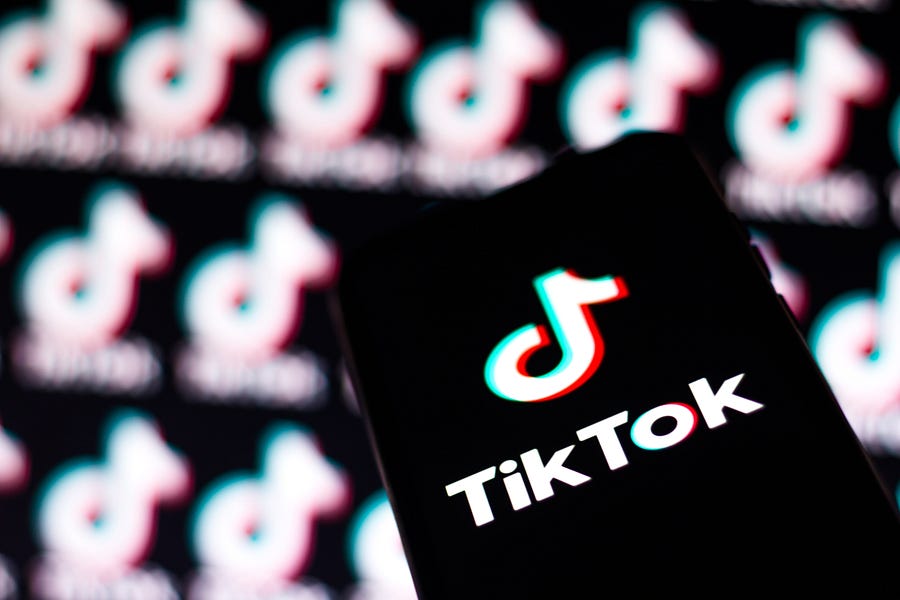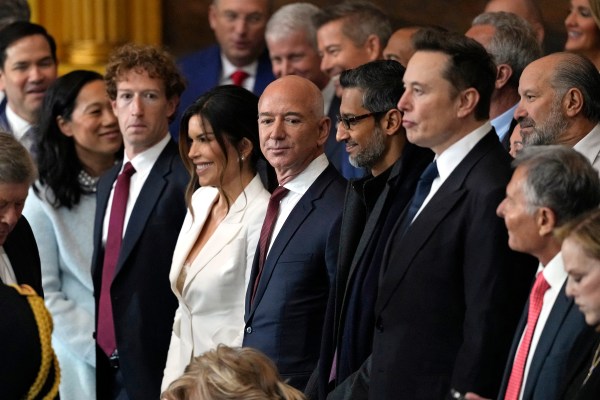Americans who came to know about the popular app TikTok only through the often goofy videos of its users create—of themselves dancing or attempting weird stunts, or of animals doing cute things—might have been surprised to learn that the White House considers it a national security threat.
But that is President Trump’s justification for setting a September 15 deadline for TikTok’s parent company to divest the app to a U.S. company or face an outright ban. While Microsoft is currently negotiating to make the acquisition, there were reports last week that Apple was also interested in acquiring the company.
There are multiple ways that President Trump could enforce the ban, including adding owner ByteDance to the Commerce Department’s “entity list,” i.e. using the International Emergency Economic Powers Act to force Apple and Google to remove TikTok from their app stores. He could also use the Committee on Foreign Investment in the United State (CFIUS) to unwind the TikTok-Musical.ly merger of 2018 that precipitated its recent growth. If we’ve learned anything from the tariffs on Canadian steel, which the administration justified by labeling a national security threat to the US, the executive branch has wide-ranging authority to control or limit foreign trade and investment.
So President Trump can ban TikTok but should he?
The algorithm and content moderation are a bigger threat than spying or data theft.
Given that Trump has cited national security concerns from the app, it’s worth looking at the two main theories for how TikTok could be used against U.S. interests. First, the data collected by the app could be transferred to the Chinese Communist Party (CCP) and used for nefarious purposes. However, thus far there has been no smoking gun that the CCP has used the app to spy on Americans or steal their data. Analyses of the data logs from the app show nothing out of the ordinary. Of course, the CCP still has the incentive—and the pattern of behavior—to use the app for geopolitical ends. But the lack of sensitive data collected by TikTok means it’s a poor avenue for espionage.
That leads to the second—and much more plausible—threat vector. As Ben Thompson argued persuasively at Stratechery, perhaps the gravest threat from TikTok is not data theft or snooping, but rather manipulation of the algorithm to suppress content the CCP wants to suppress and promote content the CCP wants to promote. We’ve already seen a few isolated cases of this occurring. In November 2019, TikTok banned an American user who had posted a video discussing China’s treatment of Uighurs. Two months ago the app reported a suspicious technical glitch in which videos with the hashtag #GeorgeFloyd and #BlackLivesMatter were showing zero views. The director of the National Counterintelligence and Security Center published a statement last week saying they “are primarily concerned about the ongoing and potential activity by China, Russia, and Iran” in relation to the 2020 U.S. elections. In the long run, TikTok could be used to influence American political opinions and suppress anti-CCP content.
Look at what the Chinese Communist Party does, not what it says
As these threats are still hypothetical, we must infer what value the CCP places on TikTok as an offensive weapon for battling foreign adversaries. One way to do that would be to look at what the CCP does in regard to TikTok rather than what it says (though of course, looking at what it says can be useful for understanding ideological goals). This approach was extremely valuable for understanding the extent of the coronavirus epidemic in China in late 2019 and early 2020. For months, state media reported that the situation was under control and the public health threat was limited. The CCP’s actions, on the other hand, told a different story. On January 23, the CCP imposed a lockdown in Wuhan and other cities in Hubei, temporarily imprisoning 57 million residents in their homes. This action was not consistent with an insignificant public health threat.
In the case of TikTok, what we’re trying to discern from the outside is how the CCP views the app in terms of economic value and geopolitical value. Ironically, if the CCP is willing to let a divestiture of TikTok go through, that indicates the fears of a national security threat were overrated. If the app’s only value is economic, then facilitating a sale before a ban takes effect is logical. But if the CCP views the app primarily as a means of geopolitical influence, then it may be worth the risk of destroying some economic value to keep TikTok in Chinese hands. That means if the CCP blocks the sale, or drags its feet till the last possible second, or limits the sale to only U.S. assets, then the national security threat was very real.
These actions will tell us how the CCP views TikTok as a potential strategic asset. Is it closer to Huawei, which produces the world’s leading 5G kit and is seen as a major threat to telecommunications infrastructure? Ask yourself: Would the CCP consider selling Huawei if pressured to do so by the U.S. government? The U.S. is already sanctioning the company and having its executives arrested abroad. And yet there is no talk of divesting Huawei’s foreign assets. Or is it closer to Alibaba, a platform for buying and selling Chinese-made goods that is widely seen as less threatening? Where does TikTok, a communications network and media platform, fall on that spectrum?
On Tuesday, Chinese state media called the U.S. a “rogue country” for its planned “smash and grab” of TikTok. We’ll wait and see what actions might follow.
Trump is wrong to demand “key money”
As part of a potential deal, President Trump has demanded a special payment to the U.S. Treasury. “It’s a little bit like the landlord/tenant; without a lease the tenant has nothing, so they pay what’s called ‘key money,’ or they pay something,” Trump said. “Right now they don’t have any rights unless we give it to them, so if we’re going to give them the rights then it has to come into this country.”
Joe Weisenthal, an editor and TV host at Bloomberg, argued this makes sense.
It makes sense for Microsoft to pay a finder’s fee to the treasury if it buys TikTok. If you’re negotiating to acquire a company whose alternative to a sale is essentially death, then you have an advantage and can likely get it for less than its worth. A fee mitigates that subsidy.
But this is less an exception than the rule. Markets don’t exist in a vacuum. All markets are subject to and shaped by government rules. President Trump said, “Without us there would be no sale.” But without approval from the FTC, there would be no large mergers, period. Should the government demand a cut of all those mergers too?
President Trump’s behavior in this case echoes his behavior in the Huawei situation. He publicly stated that he would intervene in the DOJ case against a Huawei executive accused of financial fraud if it would help secure a trade deal with China. In a country governed by the rule of law, there is no place for mixing national security and fiscal policy.
Even though President Trump may want to force a sale of TikTok for the wrong reasons (to shut down political organizing he doesn’t like, to use it as a pawn in the trade war, to extort private companies for “key money,” etc.) it is still the right thing to do given the threat to national security posed by the app’s algorithm and content moderation policies. Even if the CCP doesn’t have plans to use TikTok as an ideological weapon now, it would always be sitting there in the background as a possibility. We should remove the temptation for them to do so.
Free markets and free expression are critical values worth protecting. But the CCP is not a neutral actor operating in good faith. We must account for how adversarial countries respond to our policies. The CCP and other anti-democratic regimes around the world block US tech companies from entering their markets at the same time they seek to enter ours—with the ultimate goal of weakening our liberal democratic values. Forcing a divestiture of TikTok is a step in the right direction for deterring CCP aggression and foreign interference in domestic politics.
Photo illustration by Rafael Henrique/SOPA Images/LightRocket/Getty Images.






Please note that we at The Dispatch hold ourselves, our work, and our commenters to a higher standard than other places on the internet. We welcome comments that foster genuine debate or discussion—including comments critical of us or our work—but responses that include ad hominem attacks on fellow Dispatch members or are intended to stoke fear and anger may be moderated.
With your membership, you only have the ability to comment on The Morning Dispatch articles. Consider upgrading to join the conversation everywhere.